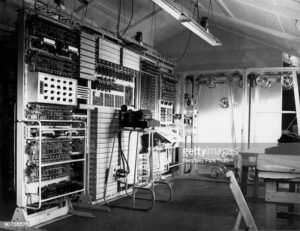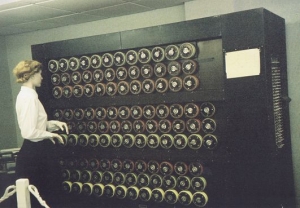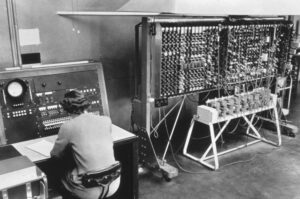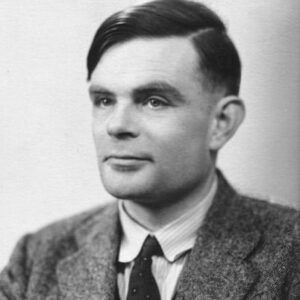Alan Turing was a British mathematician and logician who contributed a lot to our computer science, artificial intelligence and technologies in modern days. Turing was born on June 23, 1915, in London, England and died at 41 years old on June 7, 1954. He, with his professor Church, created the Church-Turing thesis, which argument about the Entscheidungsproblem and everything humanly computable.
In World War 2, Turning joined at the Government Code and Cypher School and developed with his colleagues a code-breaking machine called Bombe which was used at the war and intercepted more than 84.000 messages per month. After the war, Turning was recruited by the National Physical Laboratory in London and his design for the Automatic Computing Engine was the first complete specification for a all purpose digital computer.

UNITED KINGDOM – NOVEMBER 09: This shows control panels of Colossus, the world’s first electronic programmable computer, at Bletchley Park in Buckinghamshire. Bletchley Park was the British forces’ intelligence centre during WWII, where cryptographers intercepted and deciphered top-secret military communiques between Hitler and his armed forces. The communiques were encrypted in the Lorenz code which the Germans considered unbreakable, but the codebreakers at Bletchley cracked the code with the help of Colossus, and so aided the Allies� victory. (Photo by SSPL/Getty Images)









Leave a Reply